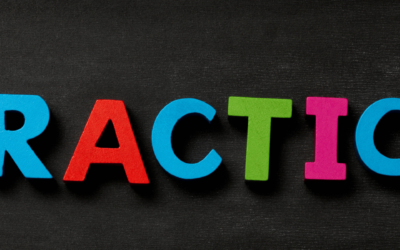You've set your sights on acing the SHL Reasoning Test, and that's a commendable goal. This challenging assessment can be a significant hurdle in your career journey, but with the right approach, you can conquer it. As you prepare to tackle verbal, numerical, and inductive reasoning questions, you'll need more than just subject knowledge. Time management, critical thinking, and strategic practice are key elements that separate top performers from the rest. But what specific techniques can give you the edge? Let's explore the strategies that'll help you verbalize victory and excel in this crucial test.
Understanding SHL's Reasoning Test Format
SHL's reasoning test structure is designed to assess your analytical and problem-solving skills. It typically consists of multiple-choice questions that you'll need to answer within a strict time limit.
The test is divided into three main types: verbal, numerical, and inductive reasoning.
In the verbal reasoning section, you'll encounter passages followed by statements. Your task is to determine if each statement is true, false, or if there's not enough information to decide.
The numerical reasoning part presents data in tables, charts, or graphs. You'll need to interpret this information and perform calculations to answer questions.
For inductive reasoning, you'll face abstract patterns or sequences. Your job is to identify the underlying rule and select the next logical item in the series.
Each question is timed individually, so you can't return to previous ones. The test adapts to your performance, becoming more challenging as you answer correctly.
It's crucial to work quickly but accurately, as both speed and precision are measured. Familiarize yourself with the format and practice similar questions to improve your performance.
Time Management Techniques
Effective time management is crucial for success in SHL's reasoning test. You'll need to balance speed and accuracy to maximize your score. Start by quickly scanning the entire test to get an overview of the questions and their difficulty levels. This will help you allocate your time wisely.
Set a time limit for each question based on its complexity. Don't spend too long on a single problem; if you're stuck, move on and return to it later if time permits. Practice using a stopwatch during your preparation to develop a sense of timing.
Prioritize easier questions first to build confidence and secure points. This strategy ensures you'll complete a substantial portion of the test before tackling more challenging items. For multiple-choice questions, use the process of elimination to narrow down your options quickly.
If you're running short on time, make educated guesses rather than leaving answers blank. There's no penalty for incorrect answers, so it's better to attempt every question.
Remember to leave a minute or two at the end to review your answers and fill in any remaining blanks.
Critical Thinking Skill Development
To excel in SHL's Reasoning Test, you'll need to sharpen your critical thinking skills.
Focus on honing your ability to analyze complex information by breaking down intricate problems into manageable components.
You can also enhance your skills in evaluating logical arguments by identifying premises, conclusions, and potential flaws in reasoning.
Analyzing Complex Information
Developing your ability to analyze complex information is crucial for success in SHL's reasoning test. This skill involves breaking down intricate data, identifying key components, and drawing logical conclusions. To improve, start by practicing with diverse types of information, such as charts, graphs, and written passages.
When faced with complex data, first skim the entire set to get an overview. Then, focus on identifying patterns, trends, and relationships between different elements. Don't hesitate to use pen and paper to jot down notes or create visual aids that help you organize the information.
Learn to distinguish between relevant and irrelevant details. SHL tests often include extraneous information to challenge your ability to focus on what's important. Develop a critical eye for spotting inconsistencies or gaps in the data presented.
Practice time management by setting strict time limits for your analysis sessions. This will help you work efficiently under pressure during the actual test.
Evaluating Logical Arguments
While analyzing complex information is key, evaluating logical arguments forms the backbone of critical thinking in SHL's reasoning test. You'll need to identify premises, conclusions, and the logical flow between them. Start by breaking down each argument into its components.
Look for keywords like "therefore," "because," or "since" that often signal conclusions or supporting evidence. Pay attention to the strength of connections between premises and conclusions. Are they valid? Do they follow logically? Be wary of common fallacies like hasty generalizations or circular reasoning.
Practice recognizing these flaws to spot them quickly during the test. Consider counterarguments and alternative explanations. Strong critical thinking involves examining issues from multiple angles. You'll often need to evaluate which argument is strongest among several options.
Don't be swayed by emotional language or personal biases. Focus on the logic and evidence presented. Remember, a well-constructed argument should be clear, relevant, and supported by sound reasoning.
Regularly engage with diverse opinions and complex topics to sharpen your skills. The more you practice evaluating arguments in daily life, the better you'll perform on SHL's reasoning test.
Practice Strategies for Success
To excel in SHL's Reasoning Test, you'll need a solid practice strategy.
Start by taking timed mock tests to simulate real exam conditions and build your speed.
As you practice, pay close attention to the questions you struggle with, allowing you to pinpoint and focus on your weak areas for targeted improvement.
Timed Mock Tests
Numerous timed mock tests are essential for mastering SHL's Reasoning Test. You'll want to simulate the actual test environment as closely as possible. Set a timer for the exact duration of the real test and commit to stopping when it goes off, even if you haven't finished.
Use official SHL practice tests or reputable third-party resources that closely mimic the test format. Don't skimp on quality – poorly designed mock tests can do more harm than good. As you progress, track your performance metrics, including accuracy and speed for each question type.
Analyze your results after each mock test. Identify patterns in the questions you struggle with and allocate more study time to those areas. Pay attention to time management – if you're consistently running out of time, work on improving your pace.
Gradually increase the difficulty of your mock tests as you improve. This will push your skills further and prevent complacency. Remember, the goal isn't just to complete the tests but to consistently achieve high scores under timed conditions.
With regular practice, you'll build confidence and familiarity with the test format, setting yourself up for success on exam day.
Identify Weak Areas
A critical step in your SHL Reasoning Test preparation is identifying your weak areas. After taking timed mock tests, analyze your performance to pinpoint specific question types or concepts that consistently challenge you. Look for patterns in your mistakes, such as difficulties with numerical calculations, interpreting graphs, or understanding complex verbal passages.
Once you've identified your weak spots, focus your study efforts on these areas. If you struggle with numerical reasoning, practice basic math skills and work on speed calculations. For verbal reasoning challenges, improve your vocabulary and practice quickly extracting key information from dense texts. If diagrammatic reasoning is your weakness, spend time studying different logic patterns and symbols.
Don't neglect your strengths, but allocate more time to improving your weaker areas. Use targeted practice questions and exercises to build your skills in these specific domains. Track your progress over time to ensure you're making improvements.
Common Pitfalls to Avoid
Several common pitfalls can trip up even the most prepared test-takers during SHL's Reasoning Test. One major mistake is misinterpreting the question, leading to incorrect answers. Always read each question carefully and ensure you understand what's being asked before selecting a response.
Time management is another critical issue. Don't spend too long on a single question, as it may cost you valuable time for others. If you're unsure, make an educated guess and move on. Overconfidence can also be detrimental, causing you to rush through questions without proper consideration.
Avoid second-guessing yourself excessively. While it's good to review your answers, constantly changing them can lead to errors. Trust your initial instincts unless you're certain you've made a mistake.
Don't fall for distractors or irrelevant information in the questions. Focus on the essential data provided and ignore extraneous details.
Lastly, resist the urge to bring in outside knowledge or make assumptions beyond the given information. Stick to the facts presented in each question to arrive at the most accurate conclusion.
Test Day Preparation Tips
While avoiding common pitfalls is important, proper preparation on test day can significantly boost your performance. Start by getting a good night's sleep and eating a nutritious breakfast to ensure you're alert and focused.
Arrive at the test location early to familiarize yourself with the environment and reduce stress. Bring all necessary items, including identification, a watch, and any permitted materials. Dress comfortably in layers to adapt to room temperature changes.
Before the test begins, take deep breaths to calm your nerves and clear your mind. During the test, manage your time effectively. Read each question carefully, but don't dwell on difficult ones. If you're unsure, mark it and return later if time allows.
Trust your instincts and avoid second-guessing yourself. Stay hydrated and take short breaks if permitted to maintain concentration. If you finish early, use the remaining time to review your answers. Don't change responses unless you're certain you've made a mistake.
Post-Test Analysis and Improvement
After completing the SHL Reasoning Test, your journey doesn't end there. It's crucial to reflect on your performance and identify areas for improvement. Start by recalling the questions you found challenging and analyze why they were difficult. Did you struggle with time management, specific question types, or particular concepts?
Next, review any feedback or scores you've received. If available, examine the detailed breakdown of your performance across different question categories. This information will help you pinpoint your strengths and weaknesses.
Consider seeking additional practice materials that focus on your weak areas. Don't hesitate to reach out to peers or online communities for advice and shared experiences. They might offer valuable insights or strategies you hadn't considered.
Additionally, explore online resources, books, or courses that can help you improve your reasoning skills. Set specific, measurable goals for improvement and create a study plan. Regular practice and targeted learning will enhance your performance in future tests.
Conclusion
You've now got the tools to ace SHL's reasoning test. Remember, it's all about mastering verbal, numerical, and inductive reasoning through targeted practice and time management. Don't forget to hone your critical thinking skills and use mock tests to your advantage. On test day, stay calm and follow best practices. After the test, reflect on your performance and engage with others. Keep improving, and you'll be ready for future reasoning challenges.






0 Comments